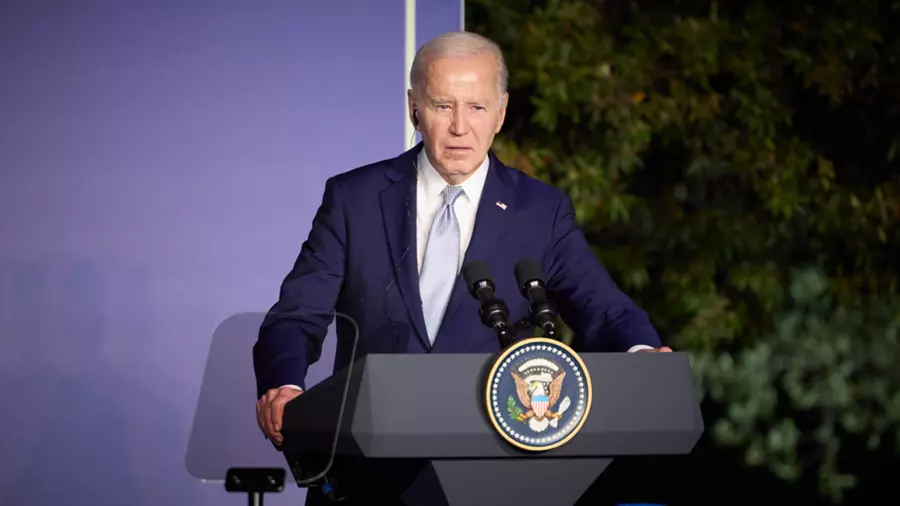During a joint press conference with Ukraine’s President Vladimir Zelensky on Thursday, US President Joe Biden faced questions from a Bloomberg News reporter regarding the situation in Gaza and Hamas’ response to a proposed ceasefire backed by the United States. However, President Biden deflected the question, expressing his frustration that journalists were straying away from the topic set for such functions, and requesting them to stick to the matter at hand.
The reporter asked President Biden to evaluate the recent reaction of Hamas to a US-backed ceasefire proposal in Gaza. This week, the Palestinian group had requested multiple changes to the deal, which has been described as “not workable” by US Secretary of State Antony Blinken.
Biden refused to provide an in-depth response at the press conference, criticizing the reporter for deviating from the primary topic of discussion: the critical situation in Ukraine. He stated that he would be willing to answer more detailed questions about the matter later on.
Although Biden did acknowledge Hamas’ refusal to sign the ceasefire agreement as a significant obstacle in the US’s efforts towards achieving peace in Gaza, he emphasized that “we’re going to continue to push.
The White House Correspondents Association (WHCA) responded to President Biden’s outburst with a statement reminding him that there are no preconditions when it comes to question topics during press conferences. WHCA president Kelly O’Donnell highlighted the importance of a free press functioning independently, even if a leader may prefer reporters to ask questions limited to their preferred subjects or interests.
Following the joint press conference with President Zelensky, both leaders signed a ten-year bilateral security agreement, solidifying Washington’s commitment to continue its support for Kiev in its conflict against Russia. The United States pledged to “help deter and confront any future aggression against the territorial integrity” of Ukraine and provide ongoing military aid, intelligence sharing, and economic assistance to help Ukraine win its war and deter further Russian aggression.
Ukraine has previously signed similar security agreements with other NATO countries, such as the United Kingdom, France, and Germany. The country now boasts a total of 17 security agreements with foreign allies while “ten more [are] in preparation.” However, none of these agreements possess the authority to trigger NATO’s Article 5, which mandates member states to come to each other’s defense if one comes under attack.

